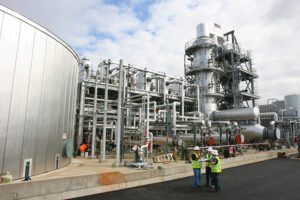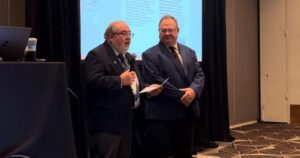WASHINGTON, DC – Today, the National Biodiesel Board (NBB), Growth Energy, NATSO, representing America’s travel plazas and truckstops, and SIGMA: America’s Leading Fuel Marketers asked Congressional leaders to exclude fuels made by co-processing biomass with petroleum at oil refineries from proposed Sustainable Aviation Fuel (SAF) tax incentives. Co-processed fuels are ineligible for the biodiesel and renewable diesel tax credit. The groups asked Congress to clarify language in the Build Back Better Act to ensure that all transportation fuels — including aviation fuels — made by co-processing biomass with non-biomass feedstocks are ineligible for incentives.
“To prevent stranding investments in existing and emerging environmentally beneficial biofuels facilities in rural America, and to ensure that any new SAF incentives are consistent with other tax incentives in driving economic, employment and environmental benefits, we respectfully request that lawmakers amend the definitions of SAF in both the Sustainable Aviation Fuel and the Clean Fuel Production Credit to clarify that eligible SAF does not include fuels derived by co-processing biomass with a feedstock that is not biomass,” the letter states.
ABOUT CLEAN FUELS ALLIANCE AMERICA
Made from an increasingly diverse mix of resources such as recycled cooking oil, soybean oil, and animal fats, the clean fuels industry is a proven, integral part of America’s clean energy future. Clean Fuels Alliance America is the U.S. trade association representing the entire biodiesel, renewable diesel and sustainable aviation fuel supply chain, including producers, feedstock suppliers and fuel distributors. Clean Fuels receives funding from a broad mix of private companies and associations, including the United Soybean Board and state checkoff organizations.





